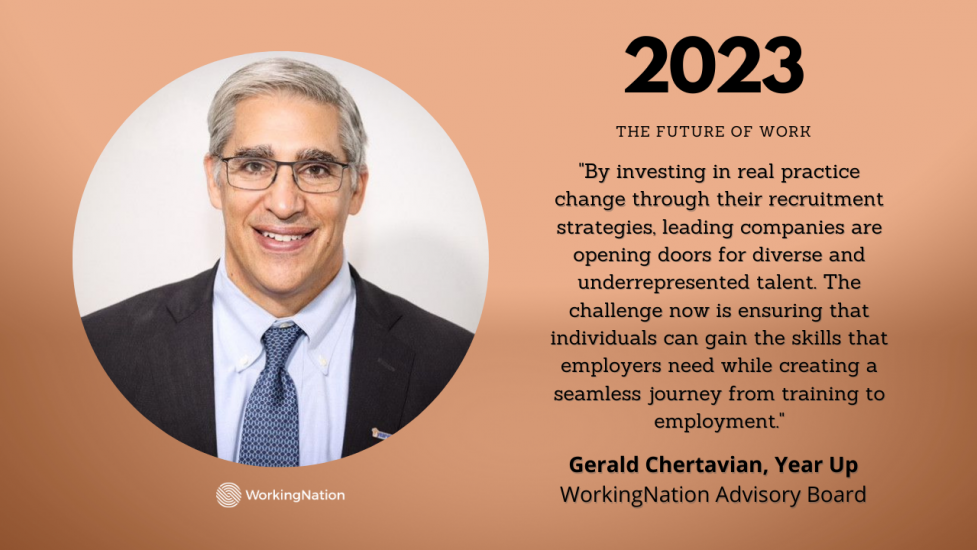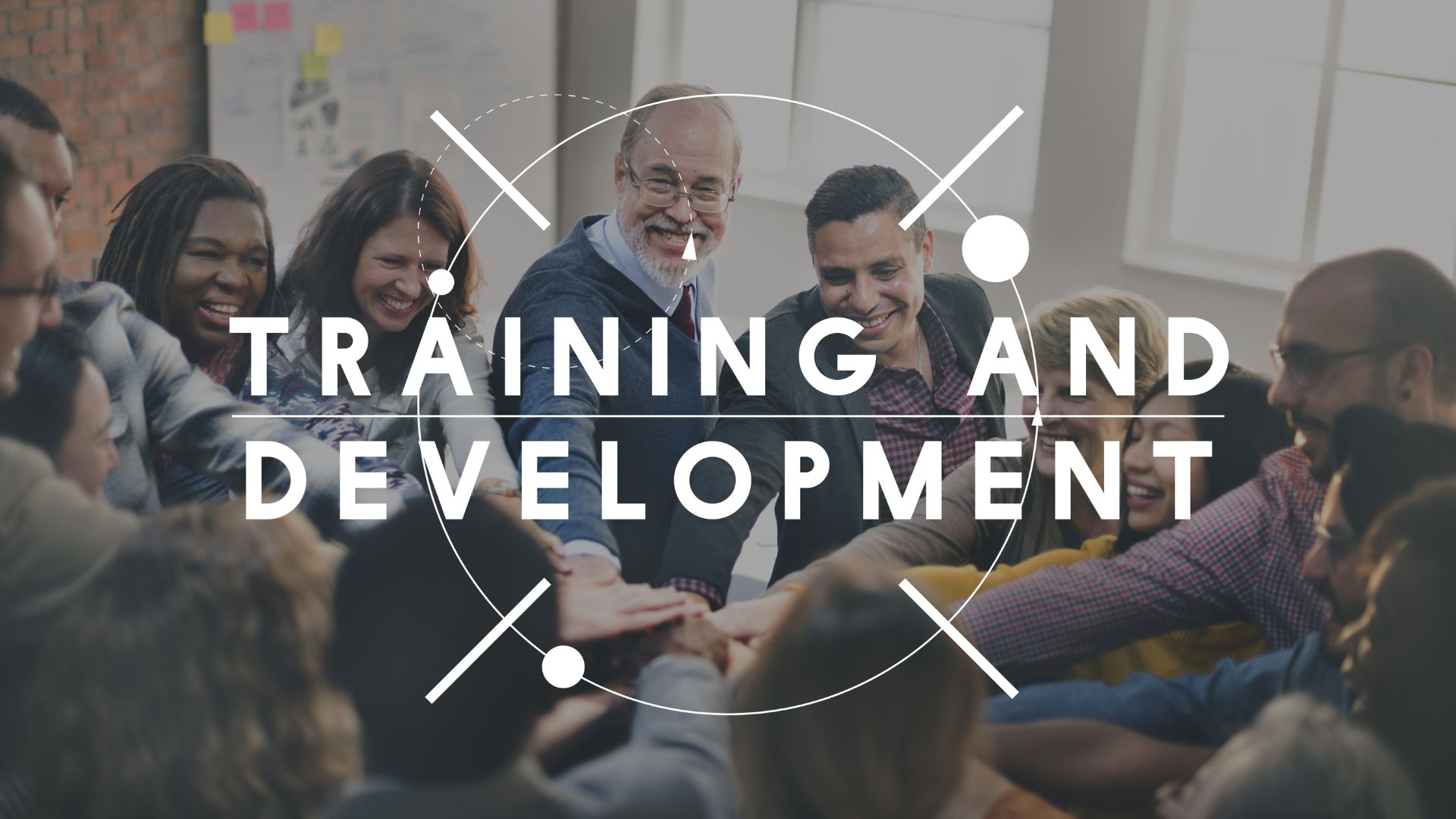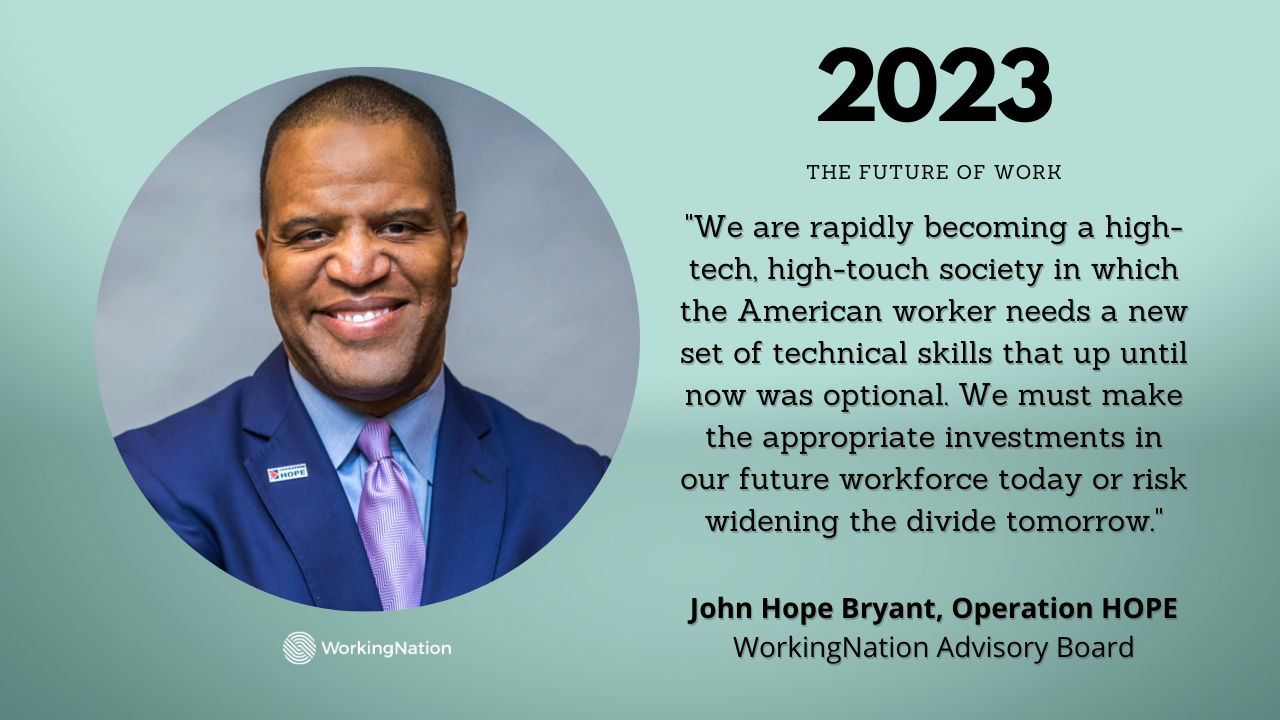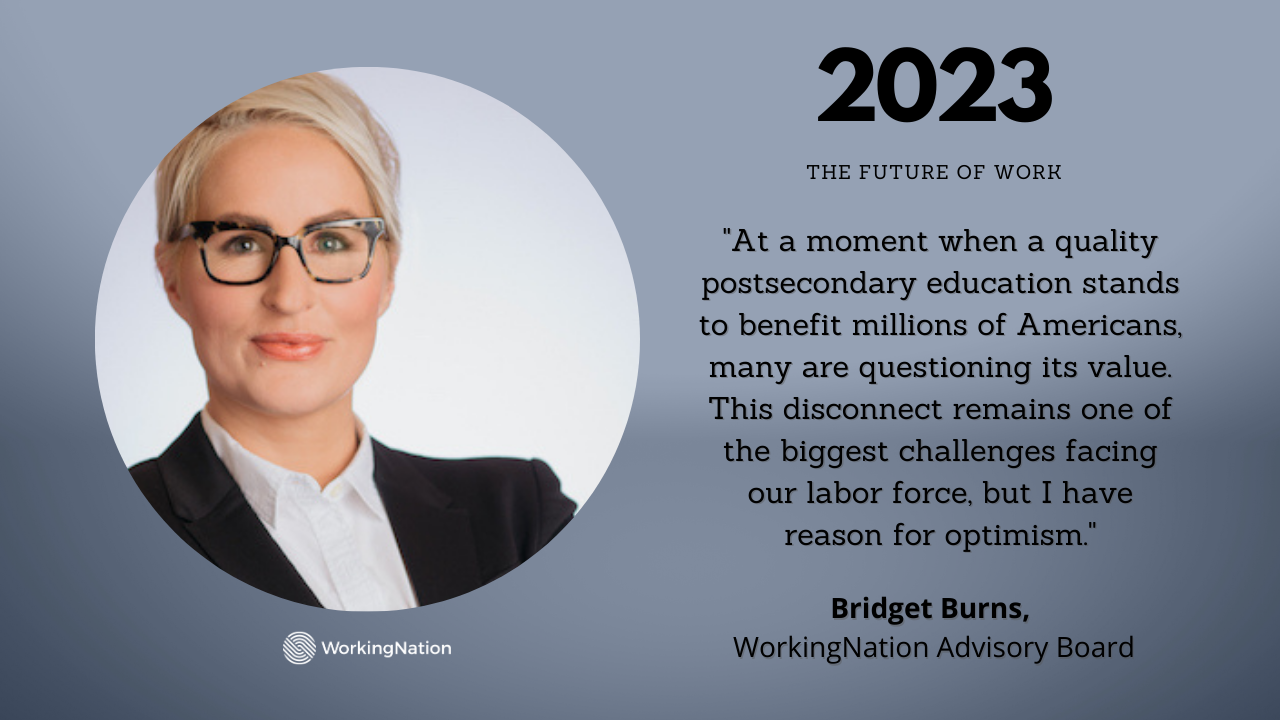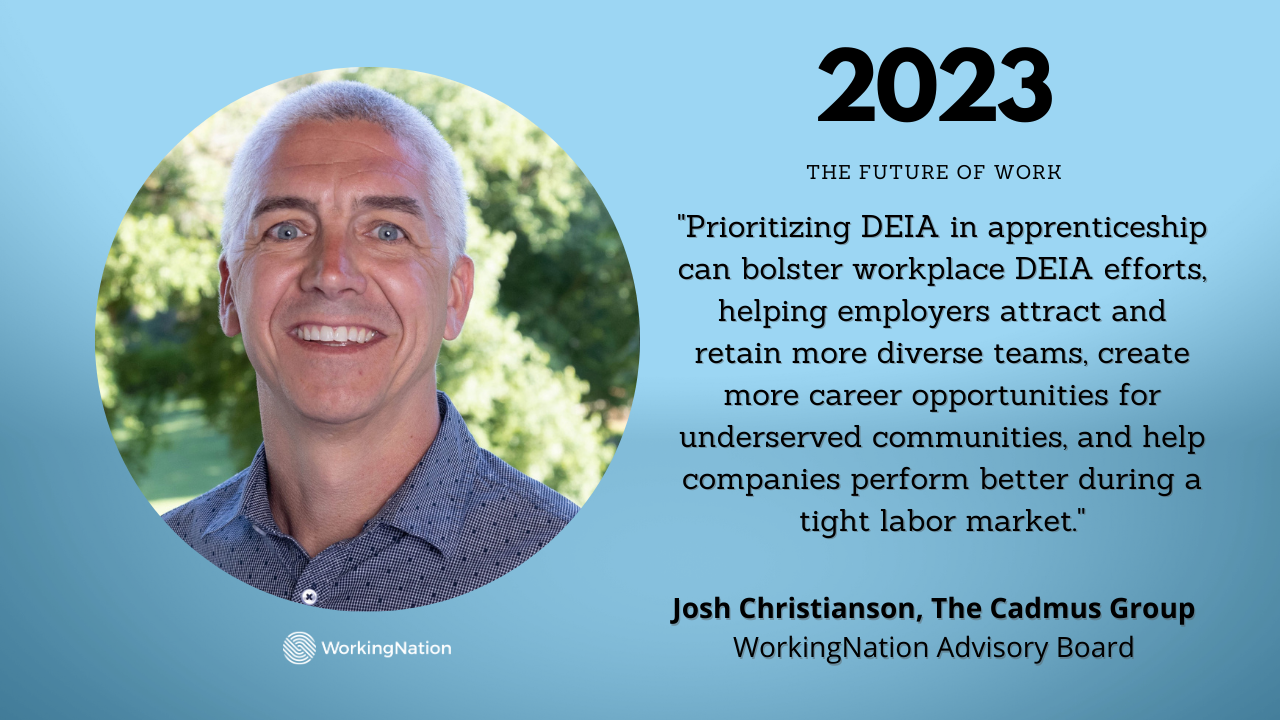We asked our WorkingNation Advisory Board to share their thoughts on the most important issues and challenges facing the workforce and the labor market in the coming year.
Gerald Chertavian is the founder and CEO of Year Up, a national program that empowers underserved young adults to enter the economic mainstream.
Here are his thoughts on The Future of Work 2023.

“In 2022, we saw more and more companies shift towards skills-based hiring. By investing in real practice change through their recruitment strategies, leading companies are opening doors for diverse and underrepresented talent.
The challenge now is ensuring that individuals can gain the skills that employers need while creating a seamless journey from training to employment.
Community colleges serve the biggest population of people looking to upskill. However, in the past, these institutions were much more focused on keeping students enrolled or having them transfer to a four-year college than on connecting them to a career.
While they remain under-resourced when it comes to career services, an increasing number of forward-thinking community college leaders are now partnering with organizations to meet this need.
Workforce development organizations are helping to bridge the gap by providing strong relationships with employers, skills training as needed, critical wraparound support, and an understanding around which technical and professional skills are in-demand. These institutions are helping their students achieve superior outcomes while providing employers with new pipelines of skilled, motivated talent.
But they can’t do it alone. In cities where workforce investment boards, community organizations, and training providers are partnering with community colleges, we see the potential to maximize access to careers for young adults and dramatically change employment systems.
Looking forward, I am encouraged by these innovations in how we upskill and support underrepresented talent, and by employers’ increasing acknowledgement that skills matter more than degrees.”


